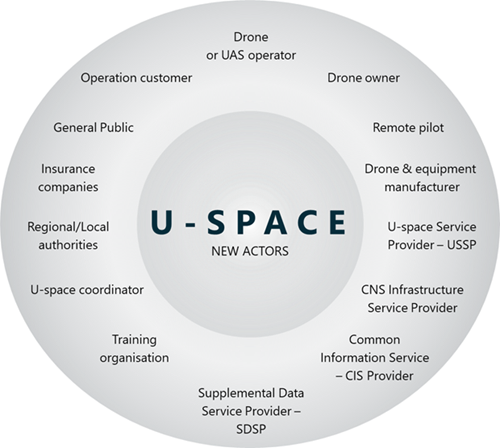Safely and efficiently integrating military operations in U-space.
Since 2015, the European Commission has been promoting U-space, an ecosystem designed to encourage the growth of drone operations in a safe, efficient and affordable manner. The development of U-space is essentially led by civilian entities and the “Military and U-space: guidelines” study conducted by EDA contributes to ensuring that military requirements and constraints are properly understood and addressed in this development. This study also aims to help the military prepare for this future environment in which, they too, will have to operate.
The regulatory framework supporting the implementation of U-space entered into force in early 2023 and introduces significant changes to the way air traffic is currently managed by defining new types of airspace and new actors responsible for delivering services to all airspace users in these airspaces.

It is recognised that U-space is a new structure, which will impact both General and Operational Air Traffic (GAT and OAT) operating under Visual Flight Rules (VFR) mostly, for example in terms of aeronautical information and services. The introduction of drones and the evolving airspace dynamics present safety challenges for military operations, which often take place in uncontrolled, low-level airspace where U-space is expected to be active. Without access to the Dynamic Airspace Reconfiguration (DAR) mechanism that allows manned and unmanned traffic to be segregated, and lacking equipment to make it conspicuous to U-space systems, military traffic may be difficult to manage for U-space actors.
Consequently, the military needed to identify specific means to ensure that they can operate safely in U-space airspace, notably when in uncontrolled airspace. In 2021, the European Defence Agency (EDA) awarded Egis a four-year framework contract to support the development of a military perspective on the implications of U-space implementation in Europe, and to facilitate its communication to civilian stakeholders involved in U-space initiatives.
